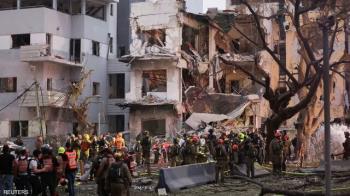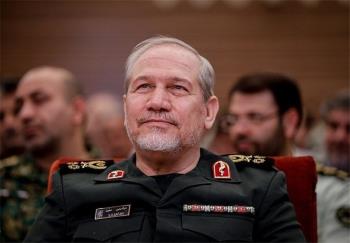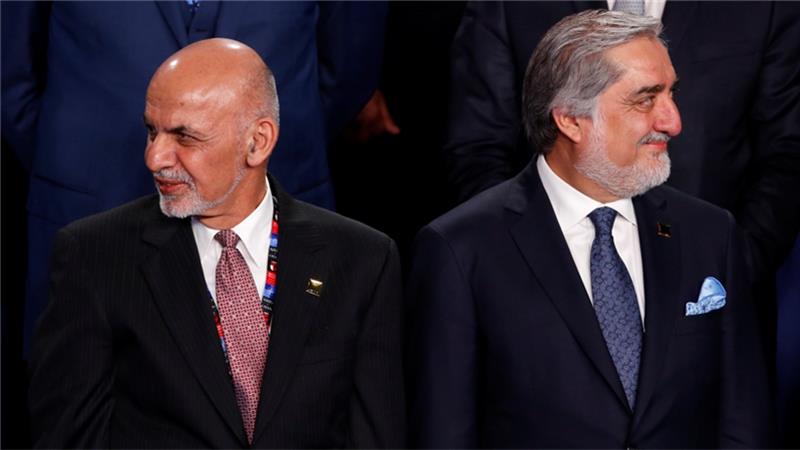Alwaght- Afghanistan's Chief Executive of National Unity Government, Abdullah Abdullah, in a meeting with Afghan youth on 11 August 2016, harshly criticized the Afghan president, Ashraf Ghani.
Chief Executive's criticism revealed his deep-rooted differences with President after Abdullah, addressing Ghani, said: “Over a period of three months you don’t have time to see your chief executive one-on-one for even an hour. Who does your highness spend his time? ... No time is allocated to Ministers to talk to you … Government is crippled … Ministers even do not have the right to appoint supervisors…."
The above mentioned words were only a small part of Mr. Abdullah's criticisms against afghan president. Roots of the two top afghan officials differences can be explained as following:
Roots of political conflict in the government of national unity
According to the Power Theory and the social and historical context of politics in Afghanistan, the following reasons can be cited about the current tensions present in the Government of National Unity:
1. Reliance on Power Based Relations
It seems that political conflict in the Government of National Unity is continuation of religious-ethnic rivalries for Power. The politicians are trying to achieve maximum benefits with minimal losses, by relying on their socio-historical backgrounds. In such a situation, increase or decrease of power of one member could start conflicts within the coalition. Through the past two years, Ashraf Ghani has changed the balance of power in Government of National Unity in his favor, and has marginalized Abdullah and his team. Ghani achieved this by relying on support from the US, Saudi Arabia, and Pashtuns and also the flexibility of Abdullah.
2. Prioritizing Secret Transactions and Agreements
Afghanistan’s political history has shown that the nature of the game of politics in this country is often based on hidden transactions and agreements. Ghani’s secret agreement for reconciliation with Islamic party of Hekmatyar, suspicious occupation of some cities in Helmand, Baghlan, and Kunduz by Taliban, and possible agreement between US and Ashraf Ghani for marginalizing Abdullah and his team, could be considered some of these agreements and transactions.
3. Opportunism of Ashraf Ghani’s Team
Ashraf Ghani’s lack of commitment to implement the political agreement and his disregard for the role of Abdullah as the chief executive, are clear signs of his political opportunism for nullifying Abdullah’s role in the Afghan government.
4. Disregard for the Rules of the Game of Politics
The Pashtuns, as the main claimants of power in Afghanistan, consider themselves as the historical and undisputed heir to power. They are willing to resort to unorthodox methods such as fraud, violation, foreign intervention, civil war, and etc. to achieve their goals. The Pashtuns have distanced themselves from the previous agreements, because the current situation of Government of National unity, is based on interaction and cooperation, and their political exclusivist ideologies would not fly in such circumstances.
Effects and Outcomes
Tensions and conflicts between the leaders of the Government of National Unity will cause political vulnerability, and probably will have the following consequences:
1. Intensifying Distrust towards National Unity Government
The current conflicts will not only cause internal distrust in the Government of National Unity, but will also lead to the distrust between society and the government.
2. Security and Military Crisis
Conflicts within the Government of National Unity and Ashraf Ghani’s approach to the issue of extremism in Afghanistan as a political leverage on his opponents will probably increase insecurity in the central and northern regions of Afghanistan. In this case, the sphere of influence of the central government across the country will be reduced.
3. Political Tension and Ethnic Backgrounds
Should the political tensions between the leaders of the National Unity Government continue, ethnic conflicts would be revived and strengthened. Indeed, political siding of different ethnic groups with the current leaders of government is clearly visible, and in this situation if the tensions between these leaders rises, conflicts between the ethnic groups in Afghanistan would be inevitable.
4. Political Obstruction
If the political gaps and problems in the Government of National Unity get worse, other parties would probably come to the conclusion that the survival of this government is not possible with the current situation, and in order to pass the current state of political crisis, Government of National Unity should be dismantled to form a provisional government in order to pursue the matters related to the upcoming elections.
Overall, it is evident that in addition to the natural and structural causes of crisis in the National Unity Government, Ashraf Ghani’s excessive exclusivism and Abdullah’s indulgence in political expediency and his conservative approaches have fueled tension is the crisis-torn country.



























